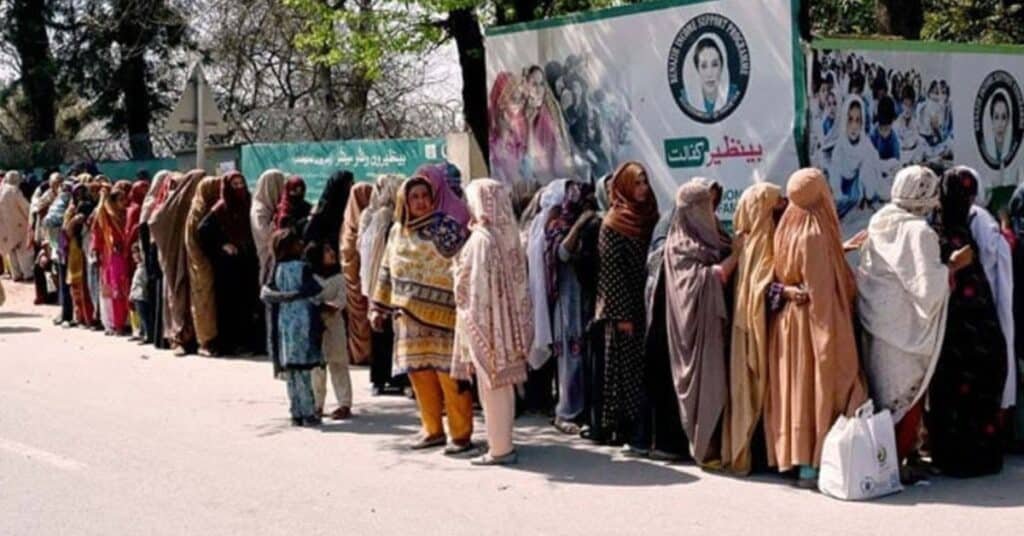ISLAMABAD (Kashmir English): The launch of the digital banking pilot project for Benazir Income Support Programme (BISP) payments is likely next month as the parliamentarians seek swift shift to digital payments for BISP beneficiaries.
The project, originally set to begin last month, is now expected to launch by the end of July, with account openings starting by August 15. The National Assembly Standing Committee on Poverty Alleviation and Social Safety has directed the authorities concerned to speed up the launch of the digital banking pilot project for BISP payments.
The committee sought to cut down human involvement in BISP disbursements to ensure smoother, more transparent delivery of financial aid.
The members called for urgent reforms to Pakistan’s social protection system, pushing for a model that relies more on technology and less on humans.
In the 10th session held at the Parliament House, the committee highlighted that reducing human interference will help lift the dignity of BISP beneficiaries.
On the other side, the State Bank of Pakistan (SBP) has confirmed that most backend systems are ready and procedural approvals are near completion.
Initially, the pilot project will run in seven selective districts and will include features such as biometric verification, geotagged banking services, and simplified account opening.
BISP debit cards
BISP beneficiaries will be issued debit cards only when fingerprint authentication completes.
To ease the process, the central bank plans to expand ATMs, introduce staggered payments, and launch digital wallets.
Testing for two-factor authentication and system integration is also in progress. After the pilot phase, a six-month review will be carried out before nationwide expansion.
The public in general and the parliamentarians in particular had expressed concerns over how BISP recipients are treated at payment camps and commercial banks.
The National Assembly committee was assured that steps are being taken to restore beneficiaries’ dignity and secure access for all.
The committee had also recommended that mobile data repositories be linked with the Pakistan Telecommunication Authority to improve biometric reliability, especially in remote regions.
As far as staff is concerned, the BISP revealed that out of 3,486 approved posts, only 2,347 are filled at present. The committee noted that too much reliance on deputation staff weakens the programme and increases operational costs.




